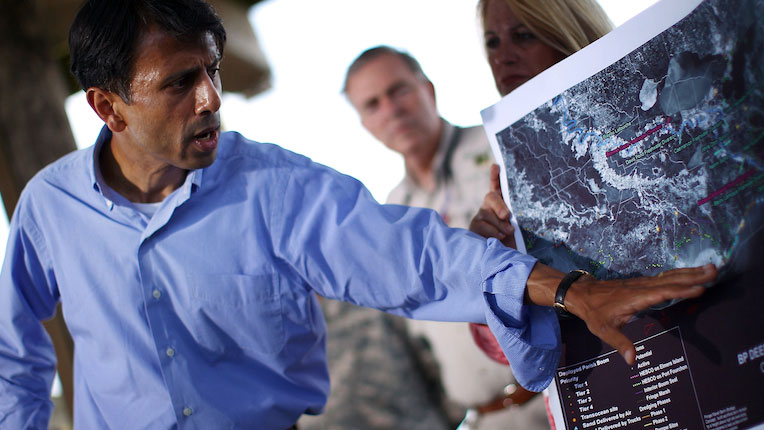State and Local Roles

During the spill, Gulf Governors and other state political officials participated in the response in unprecedented ways, taking decisions out of the hands of career oil spill responders. These high-level state officials were much less familiar with spill-response planning.
Because the majority of the oil would come ashore in Louisiana, these issues of control mattered most there. Louisiana declined to empower the officials that it sent to work with federal responders within Unified Command, instead requiring most decisions to go through the Governor's office. For example, the Louisiana representative at Unified Area Command could not approve the daily agenda of response activities. Responders worked around this problem, but it complicated operations.
Local officials were even less familiar with oil-spill planning, though they had robust experience with other emergencies like hurricanes. Under Louisiana law, Parish Presidents exercise substantial authority—mirroring that of the Governor—during hurricanes and other natural disasters. The parishes wanted to assert that same control during the spill, and many used money distributed by BP to purchase their own equipment and establish their own operating centers outside of Unified Command.
